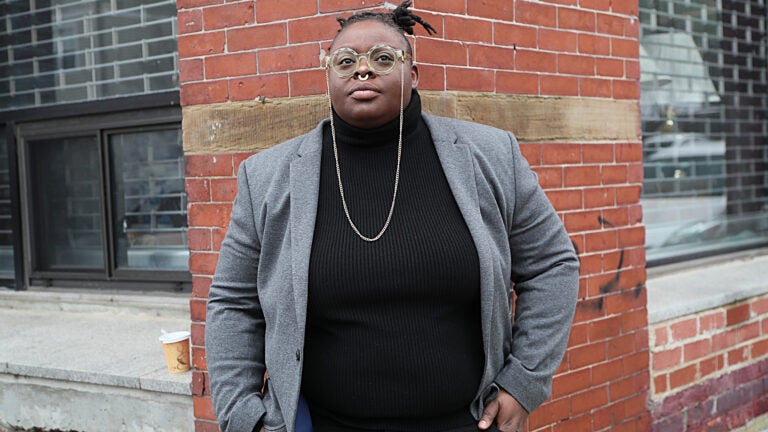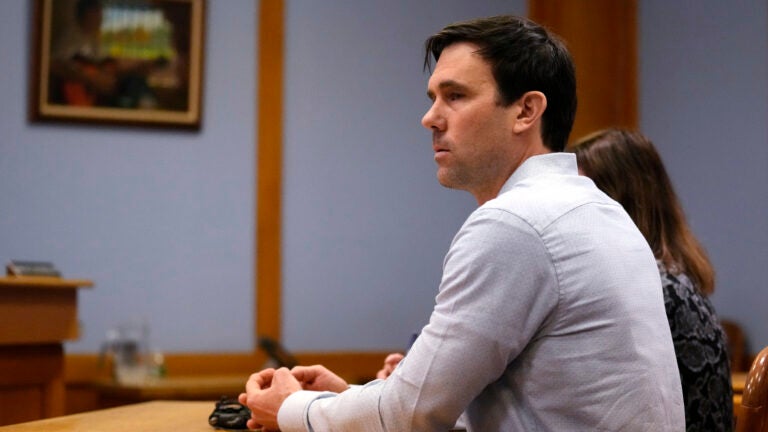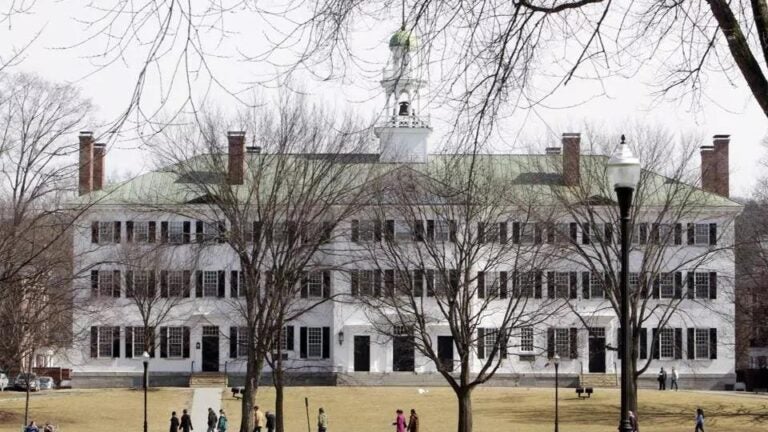It’s Ace Week — here’s what that means
With little representation on TV, in films, or across mass media, asexuality remains an unfamiliar term.
Related Links
-
SAME-SEX CIVIL UNIONS
Cardinal O’Malley says Pope Francis’ civil unions remarks ‘not an endorsement of homosexual activity’
-
Politics
Mazie Hirono grills Amy Coney Barrett for describing sexual orientation as a ‘preference’
-
#PROUDBOYS
The Proud Boys were emboldened by Trump’s words. Then, gay couples reclaimed the group’s hashtag.
Though it’s still widely misunderstood, referred to as the “invisible orientation,” most have heard the word before: asexuality.
But with little representation on TV or in films, many are also unsure what it means to be asexual. So as the world celebrates Asexual Awareness Week, dubbed “Ace Week,” from Oct. 25 to the 31 this year, here’s a closer look at what it represents.
An asexual person, according to the Asexual Visibility and Education Network (AVEN), experiences little to no sexual attraction or intrinsic desire to have sexual relationships.
Unlike abstinence and celibacy, which are both choices to avoid sex, AVEN notes how asexuality is an innate part of who someone is just like any other sexual orientation. Sexuality is a spectrum and “ace” is the umbrella term for individuals who identify toward the asexual end of that spectrum.
Initially founded a decade ago by Sara Beth Brooks, Ace Week has since become an annual international campaign to put asexuality in the spotlight, raise awareness, and spark discussion.
Hoping to mark the occasion, the Trevor Project released new research on the Ace community, which discovered that of over 40,000 LGBTQ+ youth, 10% identified as asexual or ace spectrum.
Local LGBTQ+ organizations, such as the Boston Alliance of LGBTQ+ Youth and GLBTQ Legal Advocates and Defenders, took to social media to celebrate the community.
https://www.facebook.com/bagly.allies/photos/a.278070685536514/4834780619865475/?__tn__=%2CO*F
“We celebrate all identities, and want to let our ace friends, family, neighbors, and colleagues know we see you. We love you,” BAGLY said in a tweet. “You are valid. This week, and always.”
In a Cosmopolitan article published Wednesday, asexual activist and lingerie model Yasmin Benoit said it has been nearly 10 years since she discovered the term asexual, and even since then, it’s hardly become part of public consciousness or discourse.
“It isn’t included in sex education or any conversations about sexuality. We’re left out of policies, pathologized in psychiatry and there is next-to-no representation for asexual people in the media,” Benoit wrote. “Most of the time, asexuality is either a fleeting reference, the butt of a joke, or a trait in a character that’s either an alien, robotic, or evil – a manifestation of their lack of empathy. Think your Sheldon Cooper, your Data from Star Trek, your Lord Voldemort.”
Elaborating on the issues of underrepresentation and stereotypes, Benoit referenced her own experience as asexual.
“For women, it’s seen as a symptom of their prudishness, unattractiveness, or overall blandness, which needs to be resolved by the end of the plot so they can be complete, appealing, lovable people,” she said in the article. “After all, being virginal is a good thing, perpetual sexual unavailability is not, particularly when you need a loving sexual relationship to be whole.”
“Me and My Asexuality” is OUT NOW on @bbcsounds!
This has been a year in the making! We aimed to cover new ground, amplify voices within the community and raise awareness. Thanks everyone who shared their stories! Hope you like it! 💜 #AceWeekhttps://t.co/r7s3abpba6 pic.twitter.com/FgFleRhLd3
— Yasmin Benoit, MSc (@theyasminbenoit) October 26, 2020
And Ace Week, Benoit added, is “one of the few times in the year that the community demands to be seen and people start looking.”
“Don’t miss us,” she said. “We have a lot to show you.”
To find more in Boston, New England Aces, a group for ace-spectrum individuals and allies, will be hosting an asexuality panel discussion virtually at 8 p.m. on Thursday, and a viewing session of the new documentary “Asexuals” at 7 p.m. on Friday.
Happy #AceWeek, all! Friendly reminder that we host weekly virtual socials every Thursday, as well as monthly socials every third Sunday of the month. We also have a Discord server and a pen pal program. 1/3 #AceWeek2020
— New England Aces (@NewEnglandAces) October 25, 2020
Below, see more resources to look to during this Asexual Awareness Week:
- Aces & Aros
- Vesper’s resources for Ace POC people
- The Asexual Agenda
- What Is Asexuality?
- Demisexuality Resource Center
- Julie Sondra Decker’s “The Invisible Orientation”
- Angela Chen’s “Ace: What Asexuality Reveals About Desire, Society, and the Meaning of Sex”
- What Is Asexuality: Myths and Truths About Being Asexual
Get Boston.com's browser alerts:
Enable breaking news notifications straight to your internet browser.








Conversation
This discussion has ended. Please join elsewhere on Boston.com